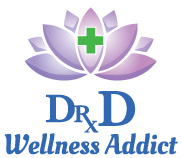Sometimes you can only find heaven by slowly backing away from hell..
Substance abuse, aka addiction, is a unique disease in that you must be the one to diagnose it. What I mean by that is, if you do not identify with having a substance problem, treatment will not work. No matter what your loved ones, physician or therapist tell you, the diagnosis of addiction has to come from within in order to achieve recovery. If not, the addicted brain will work its power and find a reason to continue using. Everything from periodic binge use to daily use is a problem if it is causing harm.
Substance use disorder, aka addiction, is defined as the continued use of substances despite the harm it’s causing. As I described in my article What Addiction Is, And What It Is Not, it’s time to raise the definition of rock bottom and redefine what it means to experience harm from the repeated use of substances like drugs and alcohol. Let’s look at a few ways to diagnose a substance problem.
CAGE Substance Abuse Screening Tool
The simple CAGE substance abuse screening tool can be used to determine if substance abuse exists and needs to be addressed. Answering “yes” to just one of these questions indicates you may have a problem. Note that the questions specifically refer to drinking but can be used to assess the abuse of any substance.
1. Have you ever felt you should cut down on your drinking?
2. Have people annoyed you by criticizing your drinking?
3. Have you ever felt bad or guilty about your drinking?
4. Have you ever had a drink first thing in the morning to steady your nerves or to get rid of a hangover (an eye-opener?)
DSM 5 Criteria
A more comprehensive assessment is from the 5th edition of the Diagnostic and Statistical Manual of Mental Disorders, which uses 11 criteria to diagnose substance use disorder. A “yes” to 2-3 criteria indicates mild disease, 4-5 moderate disease, and 6 or more severe disease. Just like with the CAGE tool, consider addressing substance use if there is a “yes” to just one of these criteria, as addiction is a progressive disease that will worsen if left untreated. Early intervention is critical to reduce and prevent the complications associated with substance abuse.
1. Taking the substance in larger amounts or for longer than you’re meant to.
2. Wanting to cut down or stop using the substance but not managing to.
3. Spending a lot of time getting, using, or recovering from use of the substance.
4. Cravings and urges to use the substance.
5. Not managing to do what you should at work, home, or school because of substance use.
6. Continuing to use, even when it causes problems in relationships.
7. Giving up important social, occupational, or recreational activities because of substance use.
8. Using substances again and again, even when it puts you in danger.
9. Continuing to use, even when you know you have a physical or psychological problem that could have been caused or made worse by the substance.
10. Needing more of the substance to get the effect you want (tolerance).
11. Development of withdrawal symptoms, which can be relieved by taking more of the substance.
Attempting To Control Your Use
If you noticed, both the CAGE and DSM 5 criteria include the inability to limit one’s use. Although not a standard clinical assessment, attempting to limit or control use and failing to do so is a pretty good way to determine if you have a problem. For example, I tried to limit my drinking to two drinks three times a week. It only took me a couple days to realize I had a problem.
I will end by saying this – if you think you have a problem, you most likely do. The most important thing is not which assessment you use to identify the problem, but being rigorously honest with yourself. Addictive brains are geniuses at lying, rationalizing, justifying, and coming up with every excuse under the sun to defend substance use. Consider exploring the issue with a trusted confidant, ideally one with personal or professional substance use experience. This could include a supportive loved one (one in recovery, not an active user), a sponsor from a fellowship program like Alcoholics Anonymous, or a physician or therapist trained in addiction.
If you are at the point where you are ready to explore the possibility of a substance use problem, congratulations. You have achieved the most important and arguably the most difficult step in getting help for addiction – identifying you have a problem. Stay tuned for more information on how to get help. You are loved, and you are not alone.
